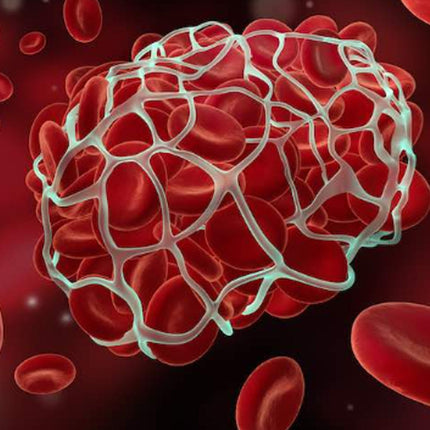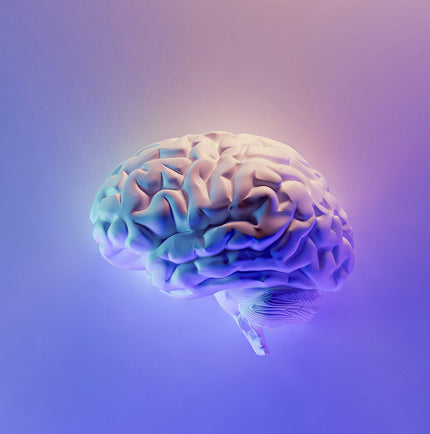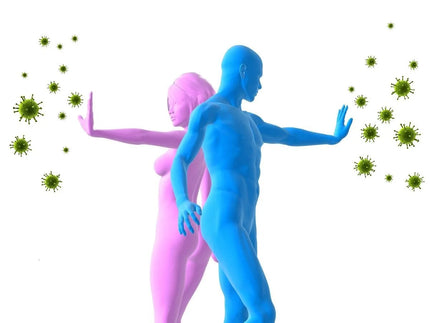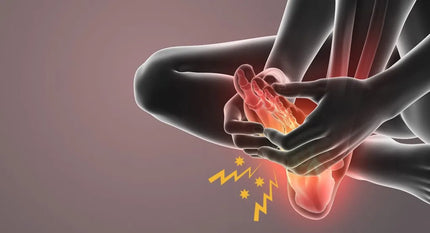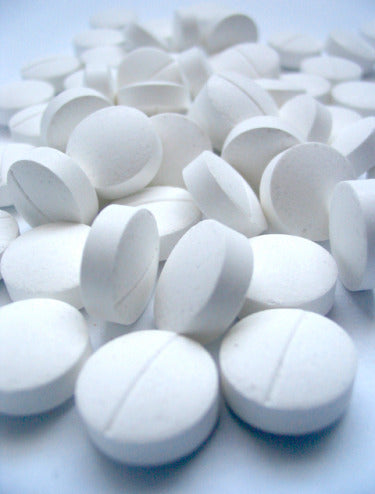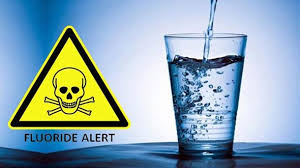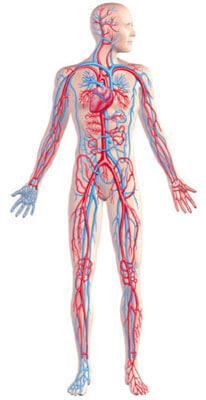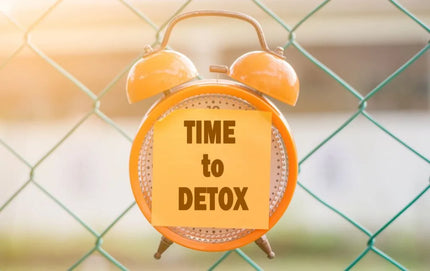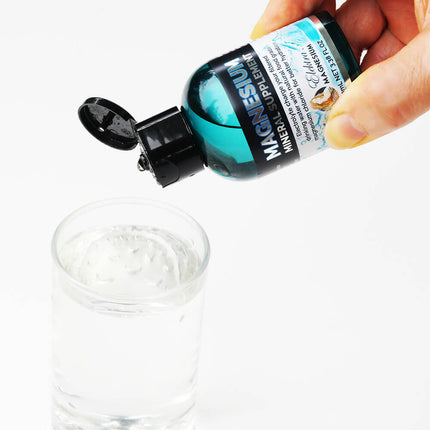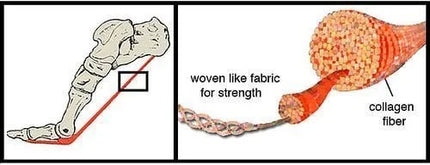Tax included and shipping calculated at checkout
When it comes to colds and flu most people go straight for the vitamin C, honey and lemon herbal teas and the like, to treat and strengthen the immune system.
Vitamin C (ascorbic acid) – the king of the vitamins
This is a good strategy, as there has been plenty of evidence collected since last century about the restorative benefits of vitamin C.
Vitamin C is involved in several vital processes such as energy metabolism and gene transcription, as well as in regulation of hormonal and epigenetic pathways. It possesses antimicrobial properties, which reduce the risk of infections, and has immuno-modulatory functions, particularly in high concentrations. Vitamin C has also been shown to have anti-viral, anti-fungal and anti-parasitic effects. [1]
There is little or no risk of overdose, as vitamin C is water-soluble and easily eliminated by the digestive system. It is recommended to take your doses up high enough to induce loose stool when combating pathogens. You will find you can tolerate a lot higher dose when the body is under attack, as the immune system consumes more vitamin C. Studies have shown that as lymphocytes and natural killer cells of the immune system take up more vitamin C, they become more virulent against pathogens.
 To get the most out of vitamin C supplements it's best to eat foods rich in vitamin C and/or combine acsorbic acid with fresh fruit juice for added enzymes and trace elements. Lipophilic vitamin C (ie. infused in lipids) can be better absorbed in the digestive system compared to the water-soluble supplements. In cases where the digestive system cannot tolerate high doses, or in acute disease states, intravenous vitamin C therapy has shown impressive recovery results.
To get the most out of vitamin C supplements it's best to eat foods rich in vitamin C and/or combine acsorbic acid with fresh fruit juice for added enzymes and trace elements. Lipophilic vitamin C (ie. infused in lipids) can be better absorbed in the digestive system compared to the water-soluble supplements. In cases where the digestive system cannot tolerate high doses, or in acute disease states, intravenous vitamin C therapy has shown impressive recovery results.
Intravenous vitamin C therapy successful in treatment of symptoms of COVID-19 (coronavirus) in China and Japan
Early in March of 2020 the government of Shanghai, China, announced its official recommendation that COVID-19 should be treated with high amounts of intravenous vitamin C.
“The Japanese College of Intravenous Therapy (JCIT) recommends intravenous vitamin C (IVC) 12.5/25g (12,500 - 25,000 mg) for acute viral infections (influenza, herpes zoster, common cold, rubella, mumps, etc.) and virus mimetic infections (idiopathic sudden hearing loss, Bell's palsy). In adults, IVC 12.5g is given for early stage illness with mild symptoms, and IVC 25g for moderate to severe symptoms. IVC is usually administered once or twice a day for 2-5 continuous days, along with or without general treatments for viral infections.”
Dr Richard Cheng announces new clinical studies into intravenous vitamin C therapy to treat infectious diseases like coronavirus: https://youtu.be/TC0SO9KDG7U
https://youtu.be/TC0SO9KDG7U
Vitamin C is also involved with iron absorption. Why is this significant? Because pathogens compete with vitamin C for iron resources, as it is essential in aerobic metabolism. If pathogens steal too much of your iron, they can starve you of energy by starving your cells of oxygen. They produce excessive amounts of free radicals and acidic by-products which can overwhelm the immune system if there is not enough antioxidant defence available.
Vitamin C can buffer the acids and counteract the free radicals which cause so much damage by clogging and choking the respiratory system.
This is also why you can get extremely tired and run down – and anaemic - with a depressed immune system under pathogenic attack! Taking extra iron without enough vitamin C may feed the microbial beasts, but not contribute to your immune system defence. Note that overload of iron can also be toxic. It’s the antioxidant support that helps the body to use iron to its best advantage.
Magnesium – the king of the minerals
Another extremely important antioxidant nutrient often overlooked is magnesium. Like vitamin C, our body can’t make it and we must get what we need from outside.
There are over 100 years of magnesium research showing magnesium powerfully supports the immune system. Remember when you took a swim in the ocean with a head-cold, that it cleared up quickly afterwards? That’s because sea salts dry up mucus and kill pathogenic bacteria. Ocean water also contains a significant amount of magnesium, the master mineral electrolyte, which strengthens our immune system’s lymphocytes and natural killer cells.
Magnesium is essential to make ATP (adenosine triphosphate) – our cellular energy currency. No detox nor cell building and repair can take place without energy and magnesium is at the centre of the energy production. A good metabolism is the key to resilience in health.
The haemoglobin of red blood cells requires magnesium to help it take up oxygen from lungs and deliver that oxygen to tissue cells in other parts of the body. Researchers believe this is because, as part of the ATP energy currency, magnesium is vital to membrane integrity of red blood cells. The heme protein (containing iron) in these cells needs to ‘attract’ oxygen molecules from lung sacs as blood passes by. The oxygen molecules need to pass through the red blood cell (RBC) membrane – to get ‘onboard’ the train so to speak.
Magnesium is in charge of these cell membrane gateways (protein channels), creating just the right charge for proteins to do their oxygen-transporting job. Proteins do their work via attraction or repulsion, which is dependent on electrical charge. As the RBCs pass via tissue cells that need oxygen, the charge (attraction) goes the other way and oxygen molecules pass from the blood to the tissue cells. That is, the oxygen molecules get off the train at the cellular stations. At these same stations, cell wastes such as C02, are also picked up to be returned to the lungs for exhalation.
All these processes require magnesium for correct electrical charge and switching ability. Magnesium-ATP forms our cellular battery pack system. Thus in magnesium deficiency, where less oxygen gets on board, the system becomes anaerobic and acidic, that is, oxidised and damaged by free radicals. A low magnesium status itself can cause inflammation and over-reaction of the immune system.
Supplementation with magnesium can reverse this oxidative and inflammatory effect. High magnesium in a study with mice showed a “significant improvement in anemia, increased serum and erythrocyte magnesium, increased erythrocyte magnesium, increased erythrocyte potassium, reduced potassium chloride cotransport, and diminished cell dehydration.” [2]
Note the reference to increased hydration (diminished cell dehydration) when ample magnesium was present. This is because magnesium is water-attractive. And without enough water we dry up and die. Our whole electrical system relies on electrolytes and water for conductivity.
Magnesium deficiency and inflammation
Elderly populations tend to have decreasing levels of magnesium, which correlate with the onset of disease and the increase of proinflammatory cytokines (IL-6, THF-x), according to a number of studies. This means they tend to experience more oxidation, free radical damage and inflammatory responses. Older people also get more easily dehydrated because cells need the right electrolyte charge to take up enough water.
You can suffer from magnesium deficiency long before you feel the symptoms. A particular genetic study of magnesium deficiency using cDNA expression arrays found upregulation of TNF receptor 1 and IL-1 receptor type 1 as magnesium levels dropped lower. The researchers noted, “It is important to highlight that these changes in gene expression have been found very early in magnesium depletion – only two days after the deficient diet, and even before inflammatory symptoms and perceptible modification in cell functions appear.” [2]
It is interesting to note that genes respond quite quickly to magnesium deficiency, setting up a higher propensity for inflammation as magnesium drops lower. We therefore become more primed for inflammation, requiring only small triggers to initiate inflammatory responses. This hypersensitivity increases with age, coinciding with the body's increasing magnesium depletion.
Asthma and bronchial conditions
Magnesium can also relax the muscles of the lungs and help to open airways via its control of calcium channels. Calcium contracts and magnesium relaxes. “The magnesium ion has an inhibitory action on smooth muscle contraction, on histamine release from mast cells and on acetylcholine release from cholinergic nerve terminals.” [3]
Magnesium defends against and reduces superoxide production. It acts as an antioxidant to donate electrons and help buffer acids and reduce free radicals that are produced in an immune system activation. This helps to restore pH balance.
Magnesium reduces pro-inflammatory mediators, and promotes synthesis of prostacyclin and nitric oxide, which in turn stimulate broncho- and vaso-dilation.[4] Thus, using magnesium chloride flakes dissolved in water in a diffuser or inhaler can help to relax chest and lung muscles, as well as to relax the cardiovascular system. Even better is if you can add some essential oils (mentioned later in this article).

A magnesium bath or footsoak can work wonders to relax the whole body, as well as to help detox. The feet are very good at absorbing magnesium, whilst also releasing waste toxins from the skin into the hot water.
Make sure to drink plenty of mineral water for hydration, with added magnesium flakes. Pathogenic infections tend to dehydrate cells and thereby create more toxicity and acidity.
Massaging magnesium cream, lotion and/or oil into chest and back muscles can also relax and calm down the inflammation, relieving aches and pains.
Stress causes excessive magnesium loss
Magnesium is easily lost under stress, which in turn weakens the immune system. These days we also have less magnesium present in the food supply due to less magnesium in our soils. Most people are actually magnesium deficient to one degree or another in our modern fast-paced global societies. When we add on extra stress, exposure to pollution, chemicals and heavy metals, or medications which rob the body of magnesium, it’s no wonder chronic magnesium deficiency grows with age.
Magnesium should be the go-to immune system support strategy, alongside vitamin C, when defending against microbial attack – particularly in the winter flu season.
Have you ever wondered why we tend to get colds more in the winter compared to summer? The reason is that we get more stress challenges when it is very cold (causing us to lose more magnesium). We also have less exposure to sunlight. So, what has sunlight got to do with it?
Vitamin D
Vitamin D is essential for the immune system. When skin is exposed to sunlight it makes vitamin D. The skin also needs cholesterol (from fats), as well as magnesium, to facilitate this process. People who live in arctic regions with weak sunlight have survived well by compensating with foods high in vitamin D – such as fatty fish and offal meats. Fish and seaweeds also contain a good amount of magnesium.
If you have access to sunshine and the seaside you could have a swim in the ocean.

You could drink coconut water (rich in magnesium), rub coconut oil or other plant fats like shea butter on your skin, and sunbathe to charge up their skin’s ‘solar panels’, thereby making extra vitamin D.
Be mindful of course about the length of time spent in the sun (which will vary according to skin colour and condition) so as not to burn and damage skin. Lubricating the skin with magnesium cream prior to sun-bathing will help it to stay moisturised and to recover quickly. It also provides rich nutrition to support the making of vitamin D.
This strategy also encourages the skin to build a healthy glow as it tans via the production of melanin in skin, which is a powerful antioxidant and protector against radiation. Melanin mops up free radicals. But fake tans don’t count!
Coronavirus (COVID-19) – no big deal for most people
The word ‘corona’ derives from the Ancient Greek and Latin, which means ‘garland, wreath or crown’. Scientists studying common cold viruses have identified a class with a common structure, encircled by bumps that reminded them of a crown, and so 'coronaviruses' became the common name to describe this group. In most cases the common cold is benign and we get only mild symptoms, recover and all is good again.
Some coronaviruses are more virulent than others. For instance the SARS epidemic of 2002-2004 caused a 15% mortality rate of those infected, whilst COVID-19 is causing somewhere between 0.4 and 3.4%, depending on location. There are anomalies such as Italy with higher mortality rates, but virologists are reporting that Italy commonly has more respiratory illnesses than other European countries.
When people have other co-morbid health conditions and a weakened immune system, these initiating coronaviruses can lead to secondary infections, leading to complications and escalation to pneumonia. The escalation involves a lot of inflammation, which causes blockage of tubules, pain and lack of oxygen.
A virus isn't even alive. By definition it's, "an infective agent that typically consists of a nucleic acid molecule in a protein coat, is too small to be seen by light microscopy, and is able to multiply only within the living cells of a host." (wikipedia). A virus is a simple code that attaches to other living organisms and in some way corrupts things. Symptoms occur depending on how much the viral code can interfere with the life form's cellular functions. A virus may not even interfere with our cells directly, but may first attach to other pathogens in our internal microbial milieu, thereby increasing their potency to parasite on our cells.
All viruses can mutate, that is, change their coding so as to evade our immune system. Viruses are a common part of our invisible environment and are always having a go at testing the weakest areas of our immune defence. If the immune system has worked out how to block them, they can change their coding and will have another attempt at you or others whose defences may have dropped.
If a virus isn't alive, then how come it changes its coding and morphs at all? It does sound like some kind of natural intelligence is involved. Maybe that intelligence comes from the cells of our own body and that we 'attract' it for a purpose. There is much still to discover about our biology and its interaction with the environment. Some theorists have speculated that viruses come around to 'clean up' cellular wastes and toxicity. In other words, they 'test' the immune system like training at the gym so that we become stronger after recovery.
By the time a new flu vaccine is released each year, chances are the original pathogen they worked with in the lab has already mutated and morphed on to another state, which does not respond to the vaccine anymore.
To make the whole vaccine game even more dicey, there are potentially hundreds of viruses and pathogens in the environment that could cause infection and illness each year, yet vaccines can only be developed to target a handful of them. So, researchers have to ‘guestimate’ and take a punt as to which ones may take hold in the population by the following year’s flu season.
The point is, we can never hope to counter the common cold by artificially creating one specific static antibody for every potential variation and future change. It's a runaway train that you can never catch.
Good hygiene practices such as mask-wearing if you are sick and coughing, and washing your hands with soap after handling contaminated surfaces, are great ways help to curtail spread of infectious diseases, but what does Nature give us to build immunity if viruses have already taken hold? What can we do to strengthen our innate army of defences, which are genetically programmed to change and adapt as quickly as the pathogens?
The ‘panic-demic’
 The recent run on toilet paper in supermarkets is funny, yes, but also quite tragic. Let me tell you honestly, having cupboards full of toilet paper will not save you from COVID-19 symptoms. If there were empty supermarket shelves where vitamin C had been, I would understand the panic buying a lot better.
The recent run on toilet paper in supermarkets is funny, yes, but also quite tragic. Let me tell you honestly, having cupboards full of toilet paper will not save you from COVID-19 symptoms. If there were empty supermarket shelves where vitamin C had been, I would understand the panic buying a lot better.
The first thing to remember in any outbreak of infectious disease is not to panic. Fear and stress cause excessive magnesium loss, which weakens the immune system. Fear also restricts blood flow and information processing by the prefrontal cortex of the brain, and resources are then shunted more towards the limbic system and primitive part of the brain, getting ready for ‘fight or flight’ and quick action. In other words, if you allow yourself to succumb to fear and panic, worry and stress, you will be less able to reason and work out better solutions to problems.
Stressful conditions such as harsh winters can make us more magnesium deficient and vulnerable to viral infections. Defending and strengthening the innate immune system relies on good nutrition and rest. Protocols include rest, alkaline foods, vitamin C and other antioxidants such as turmeric, garlic, blueberries or acai berries, olive leaf extract and colloidal silver, etc. If you have access to other traditional antioxidant herbal remedies, use those as well.
 Inhalation via diffuser of dissolved magnesium chloride flakes plus essential oils such as frankinsense, oregano and menthol (or tea tree and eucalyptus) have an excellent reputation (to name but a few of the powerful anti-microbial oils available). You can get more leverage from antioxidants when they work as a team. For instance, use essential oils, magnesium, vitamin C, zinc and vitamin Bs together for a more potent effect.
Inhalation via diffuser of dissolved magnesium chloride flakes plus essential oils such as frankinsense, oregano and menthol (or tea tree and eucalyptus) have an excellent reputation (to name but a few of the powerful anti-microbial oils available). You can get more leverage from antioxidants when they work as a team. For instance, use essential oils, magnesium, vitamin C, zinc and vitamin Bs together for a more potent effect.
Sodium bicarbonate was used by many who survived the 1918 Spanish Flu, as it helped them restore alkaline balance in cells, weakening the microbial invaders and helping to restore oxygen supply to cells. Herbal teas are also great to help detox and support the liver.
Absolutely essential is to try to get your gut health in order because that’s where your immune system is made. Regular bowel movements and cleanses are a must, which is what you can do with vitamin C and magnesium, as well as drinking lots of water and herbal teas. Natural fermented foods and probiotics help tremendously to build defences, whilst antibiotics destroy valuable gut microbes that are part of our immune defence. In an acute and extreme case the use of a targeted antibiotic may be warranted, however these days we very much over-use antibiotics, which has led to the 'training' of certain pathogenic bacteria to morph into other forms which then have no 'antibiotic' remedy.
Therefore, be mindful of supporting the gut microbiome – which happens to love Grandma’s home-made chicken and vegetable soup!
Avoiding chemicals like glyphosate and fluoride is a must, as well as heavy metal exposures such as mercury, lead and cadmium, which can all bind up and rob you of magnesium.
Magnesium is a major cellular defence. Above all, use a lot of magnesium transdermally to make sure you get high amounts making it through to your cells where it is used. Most of the magnesium in oral tablets and powders is lost via the digestive system, as they are not easily digested and absorbed by the gut wall – and especially not when we are sick! The digestive system winds down during illness and can only extract and absorb low concentrations of magnesium. In stressful conditions such as illness, we can need three times the average daily recommended amounts (ie. more than 1,000mg per day). 
Therefore, (apart from intravenous), to get higher amounts of magnesium we have to rely on the skin. Dermal absorption of magnesium ions is self-regulating. In other words, the body decides what it takes up according to needs. The skin in this way acts as a nutritional reservoir. You can use as much as you like, as much as you need to feel better, without negative side effects.
Charge up your electrical system with magnesium so your immune system gets more power to do its job to defeat the enemy invaders. Defend and strengthen your body’s ‘fort’ using Nature’s best, because our health is our greatest wealth!

By Sandy Sanderson © 2020,
www.elektramagnesium.com.au
REFERENCES:
1. Mousavi, S., S. Bereswill, and M.M. Heimesaat, Immunomodulatory and Antimicrobial Effects of Vitamin C. European journal of microbiology & immunology, 2019. 9(3): p. 73-79.
2. De Franceschi, L., C. Brugnara, and Y. Beuzard, Dietary magnesium supplementation ameliorates anemia in a mouse model of beta-thalassemia. Blood, 1997. 90(3): p. 1283-90.
3. Fawcett, W.J., E.J. Haxby, and D.A. Male, Magnesium: physiology and pharmacology. BJA: British Journal of Anaesthesia, 1999. 83(2): p. 302-320.
4. Hansen, B.-A. and Ø. Bruserud, Hypomagnesemia in critically ill patients. Journal of Intensive Care, 2018. 6(1): p. 21.
By Sandy Sanderson ©








